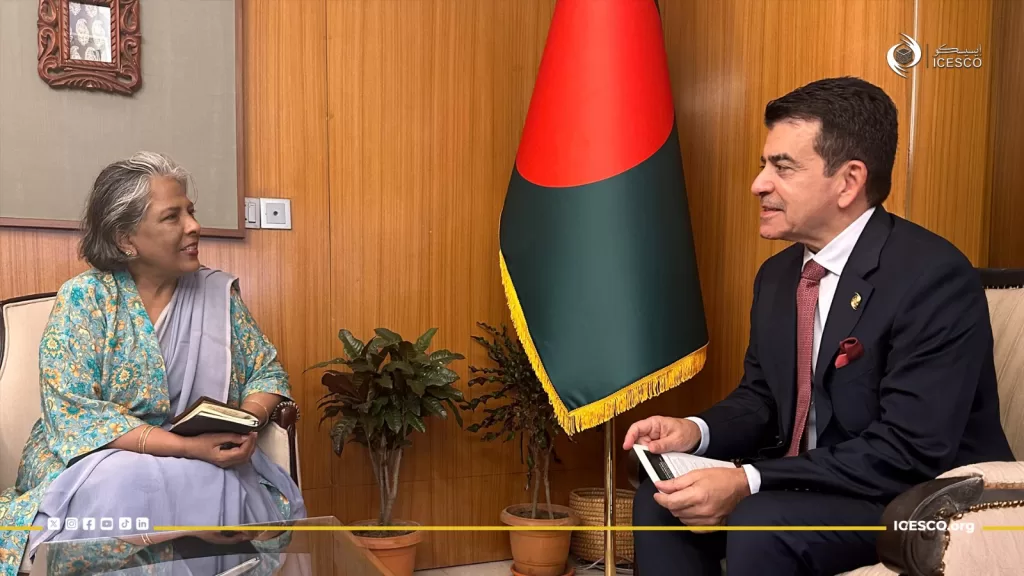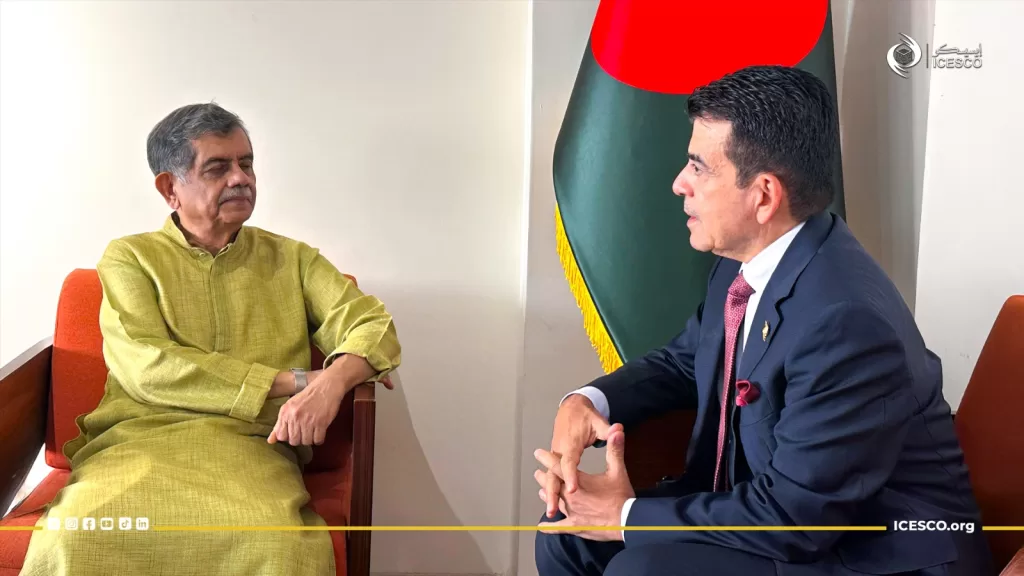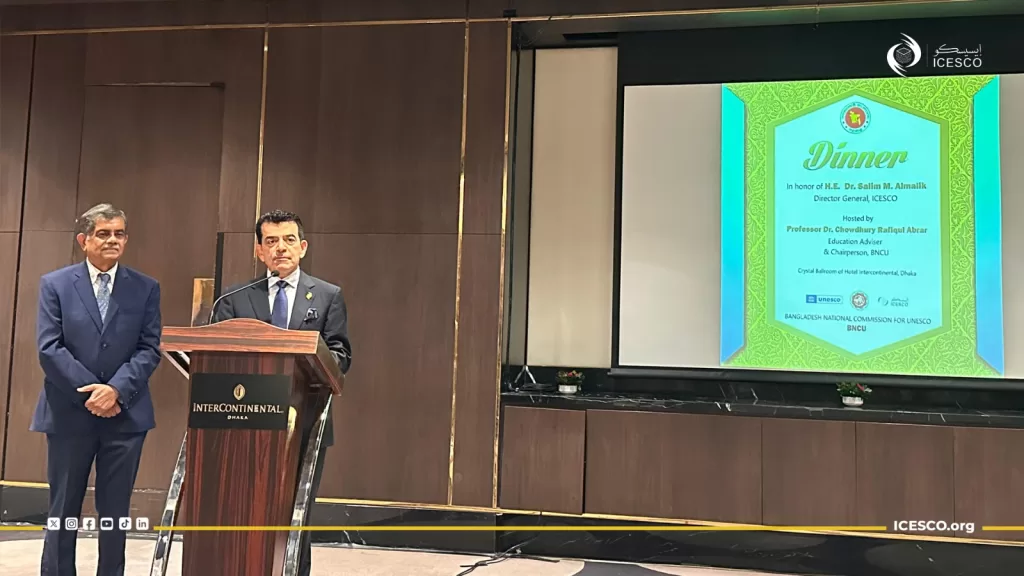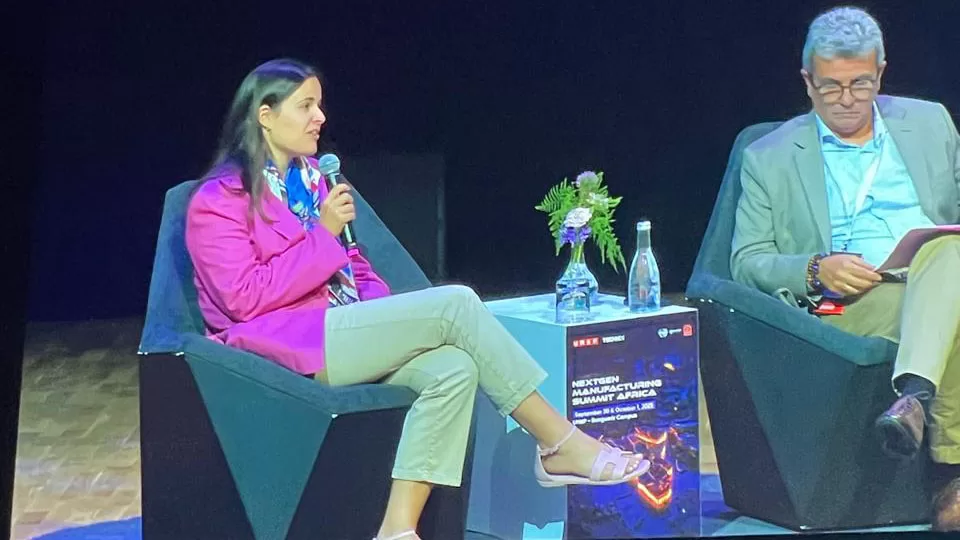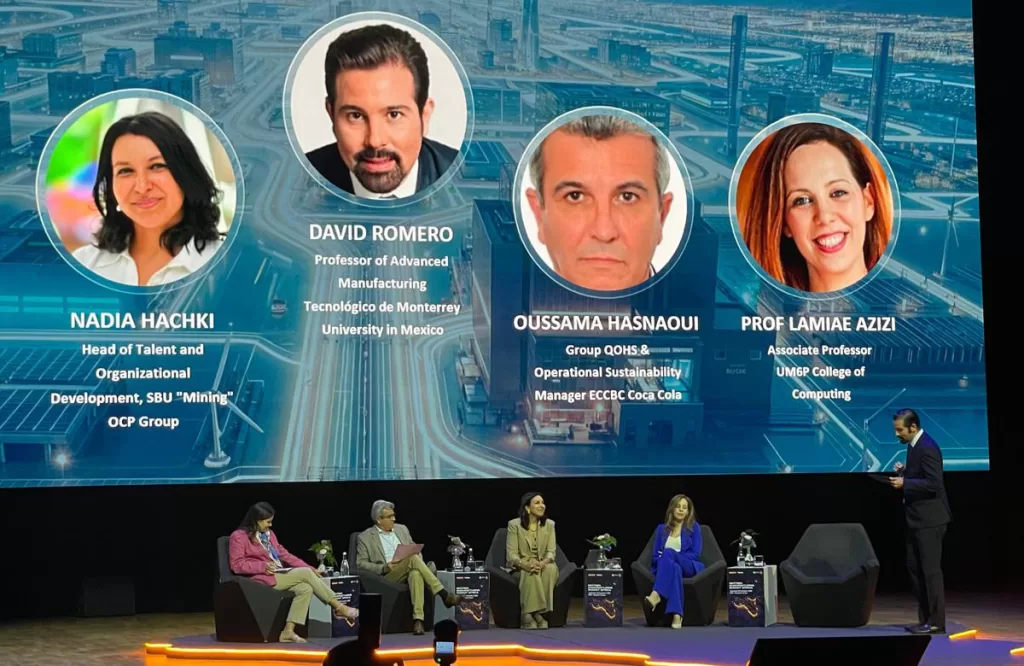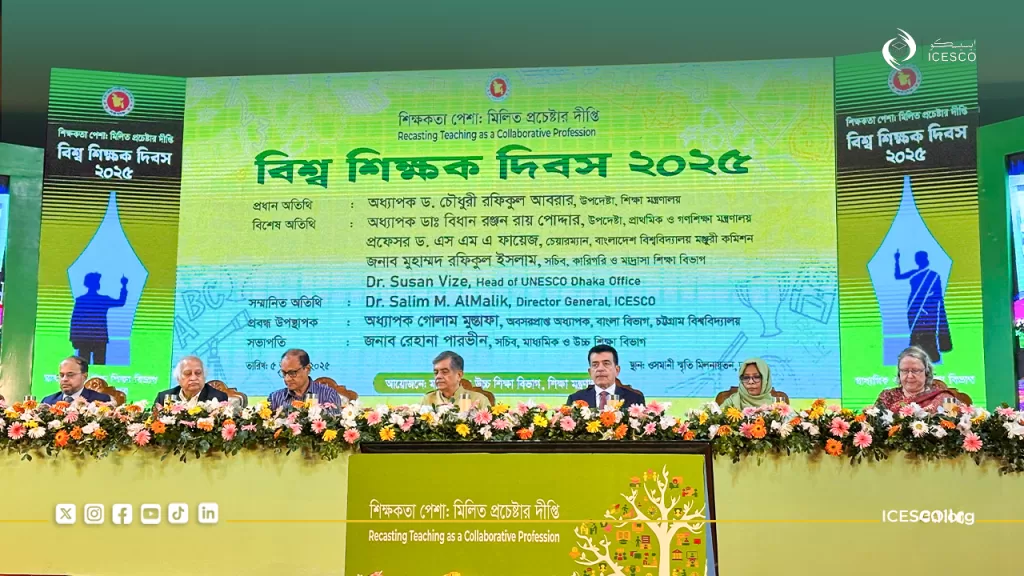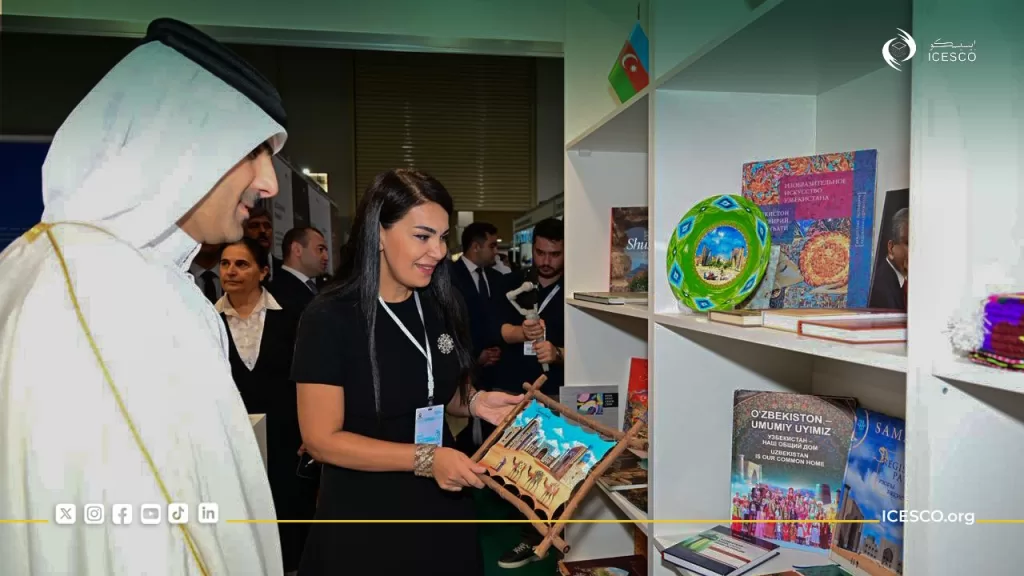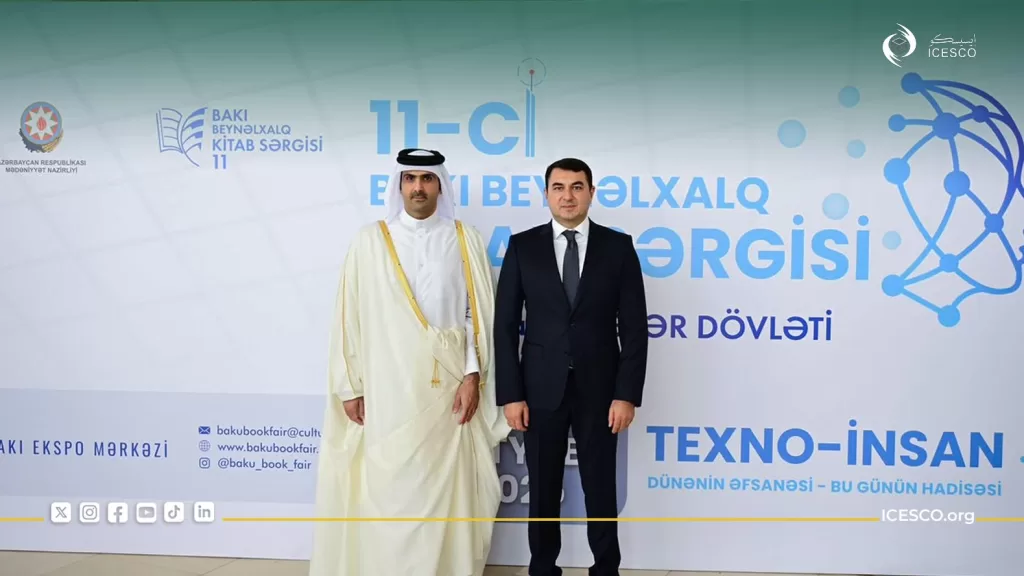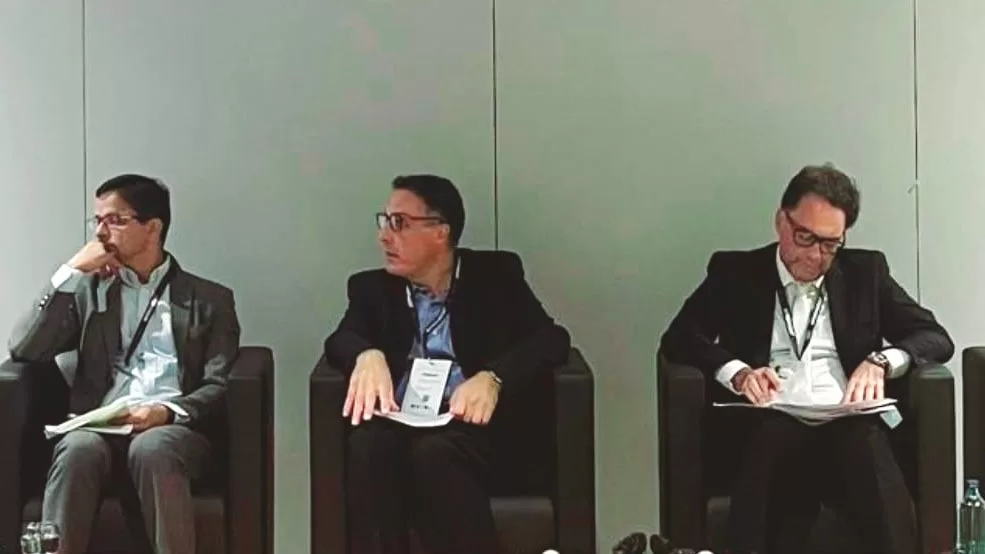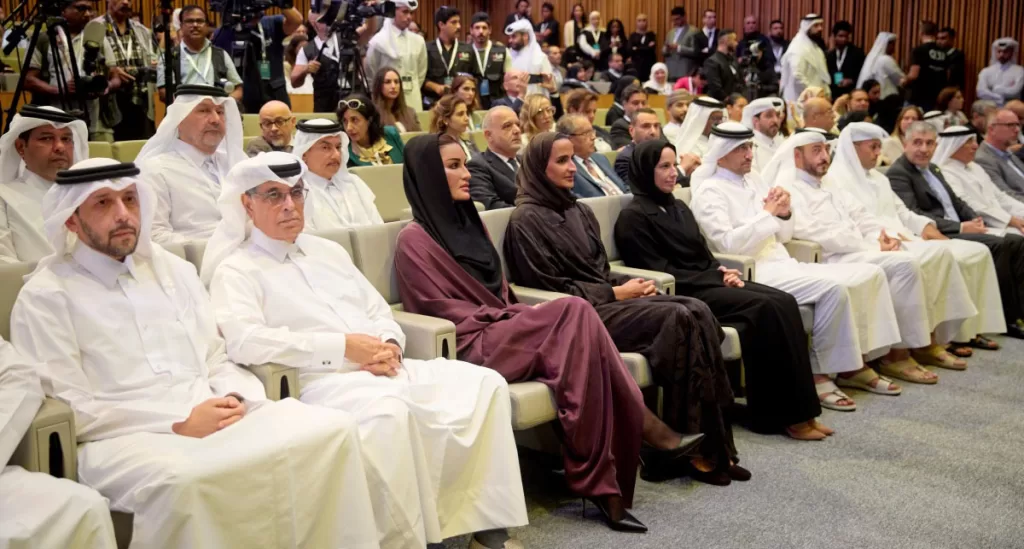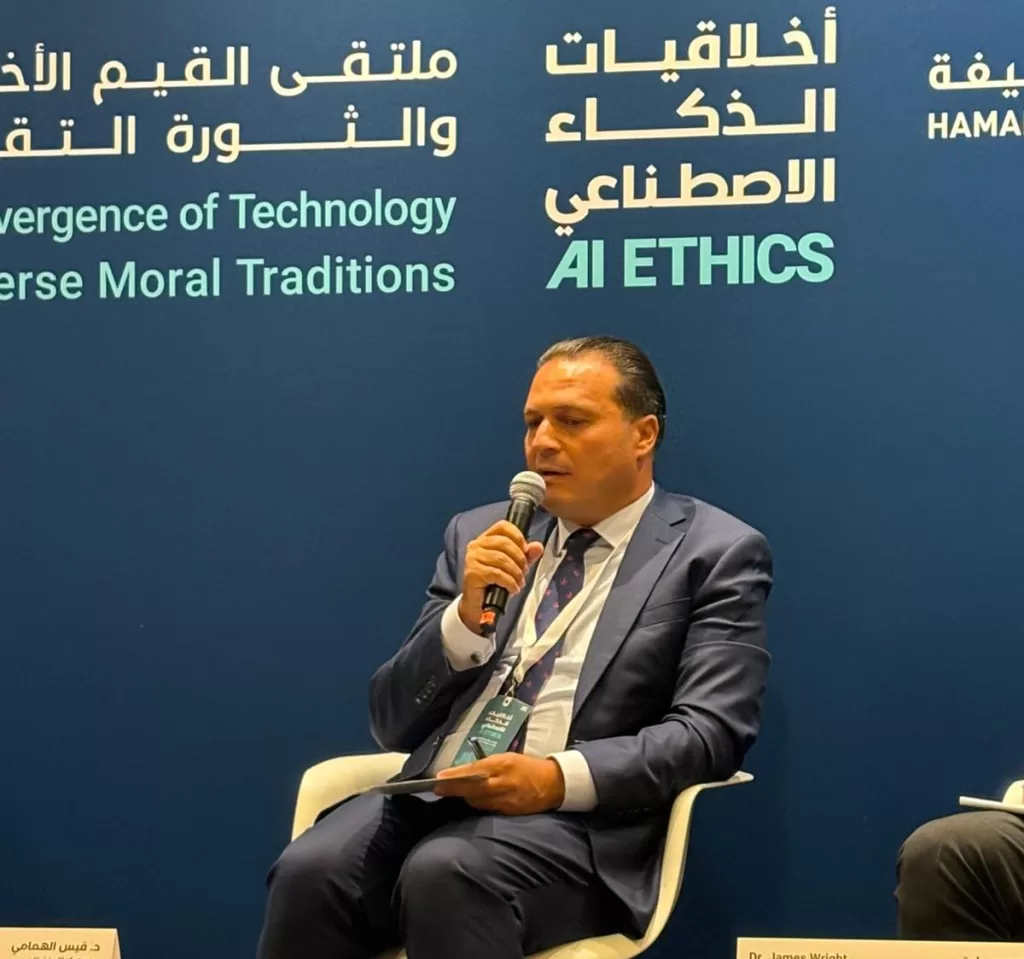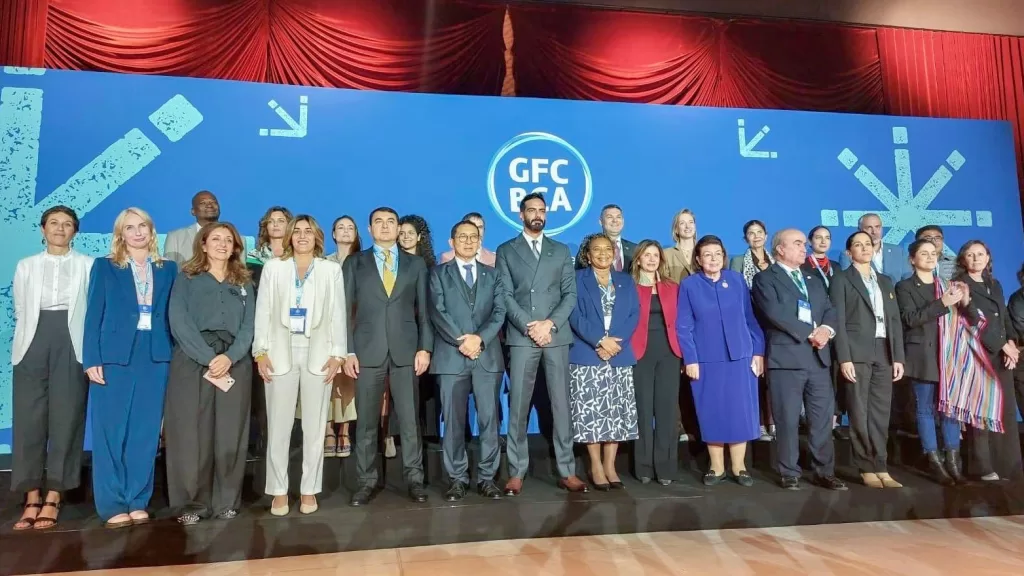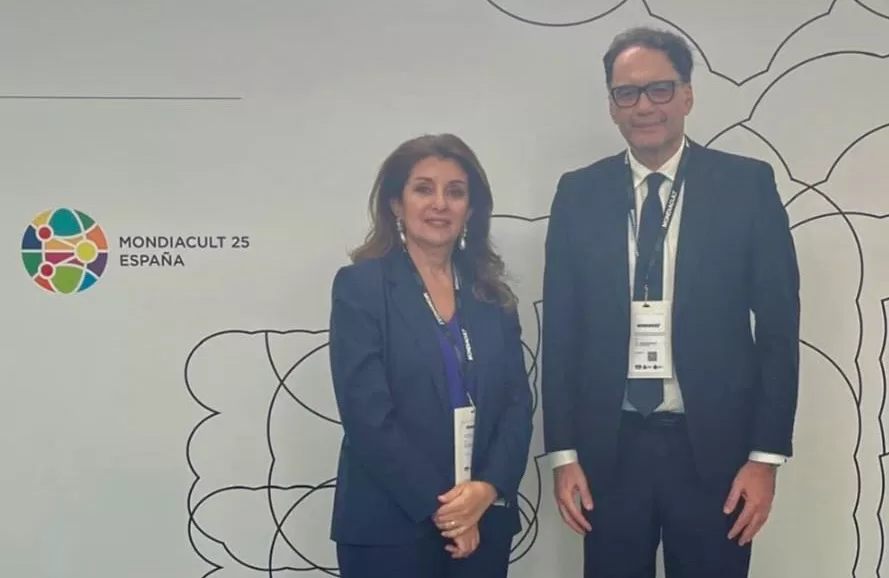Dr. Salim M. AlMalik, Director General of the Islamic World Educational, Scientific and Cultural Organization (ICESCO), visited the headquarters of the Bangladeshi National Commission for UNESCO in Dhaka on Monday 6 October 2025.
During the visit, Dr. AlMalik reaffirmed ICESCO’s commitment to strengthening its distinguished partnership with Bangladesh, noting that ongoing fruitful cooperation has resulted in joint programs, workshops, and initiatives over the recent months, including the “Green and Clean School Campus” contest and a workshop on “Robotic Surgery.”
The ICESCO Director General presented the Organization’s approach of engaging with National Commissions in Member States to understand their priorities and design projects that respond to their needs while supporting the achievement of the Sustainable Development Goals (SDGs) in ICESCO’s fields of competence.
At the conclusion of the visit, Dr. AlMalik invited members of the Bangladeshi National Commission to undertake a week-long working visit to ICESCO’s headquarters in Rabat. The visit would provide an opportunity to observe the operational mechanisms of ICESCO’s sectors and specialized centers, learn about recent updates to its administrative structure, and review its key programs and initiatives serving Member States.



